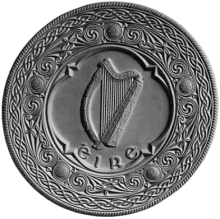History as Mediated by Culture

As researchers interested principally in contemporary issues, ethnomusicologists necessarily devote a substantial amount of ink to events in the past. We provide histories in order to establish a background for our ethnographic works, illustrate how cultural symbols become imbued with meaning, explain the ways in which people cope with their present circumstances, and discuss how “identities”—whether pertaining to a group or individual—are formulated. One issue that I have found increasingly problematic, however, is that for all the purposes upon which we rely on explanations of the past, our field lacks a comprehensive body of theory pertaining to the analysis of history. Indeed, each of us has needed to work out historical matters in our own research, yet I believe that there is ample space for further collaboration and focused attention to history. I do not intend to provide a succinct plan of action in this small space, but what I can provide are some brief reflections on my own research that serve to highlight why developing some theories about history might be worthwhile to those within our discipline.
****************************************************************************************************
Over the time that I have been studying Irish music and living in Ireland, I have come to an increasing understanding that I have been taking history for granted, not only as a concept, but also as an experience. When speaking with musicians in Ireland, I have marveled at the extent to which they could trace the provenance of Irish dance tunes and provide detailed explanations of historical events that occurred centuries ago. Moreover, the stories they told and the way they related them to their sense of identity could make one believe that something that transpired in the seventeenth century was as relevant today as it was then. My survey of writings by Irish scholars has furthermore indicated that a detailed and well-developed historical account is highly valued as a basis for any monograph on contemporary social matters. What these observations collectively have helped me realize is that history is far more than a series of events and their subsequent effects. History is mediated by culture, and consequently, the relationship between individuals within a particular society and their history is marked by a unique character.
There are several patterns to which one can call attention in describing the Irish relationship with the past. For example, one of the principal observations I made when living in Ireland is that the history of places holds a special significance for many Irish individuals. Both in literature and in conversation, one gets the sense that places are considered living entities, and the histories told about them often do as much service to characterizing the nature of the places as they do to highlighting the details of events. Indeed, stories told about the past in Ireland often hinge upon geographical landmarks (e.g. rivers, cliffs, loughs, etc.) or regions, such as provinces, counties, and towns. This is especially true for narrative songs sung in both English and Irish.
Other features concerning the Irish relationship with the past stem from the experience of being a once colonized people. As is the case for many groups around the world, historical narratives about the Irish have often been filtered through the lens of Ireland’s colonizers. Early accounts of the Irish people by travelers and statesmen from England referred to the Irish and their customs as “barbarous.” In fact, one of the few areas in which the Irish received any praise was in their performance of music on the harp. For example, the twelfth-century writings of Giraldus Cambrensis (1982) on Irish harpers would serve as a source of pride for the Irish throughout history despite the disparaging remarks that comprised the bulk of Cambrensis’s work. Early praise of Irish musicianship helps account for the primacy of music as a symbol of Irish culture and anticipated Ireland’s adoption of the harp as a national symbol in 1922.
Due to the largely condescending commentary written by Ireland’s colonizers in the official histories, narratives told informally by Irish storytellers, poets, and travelers were regarded in high esteem. Musicians, in particular, have been acknowledged throughout Irish history as competent historians who describe events in a way that allowed for a sense of dignity and pride among the Irish people. This sentiment has been expressed most beautifully by Frank Harte (1933-2005), an Irish singer who imparted the wisdom, that “those in power write the history, while those who suffer write the songs” (Harte, quoted in Moloney, 2005). Though Ireland has achieved independence, such an appreciation for “lay” histories and musicians remains.[1]
In returning to the more general statements I made earlier, I hope that this brief discussion helps to illustrate some of the reasons why a dedicated exploration of a group’s relationship with its history is a worthwhile endeavor. By seeking to uncover the unique features of a population’s relativity to its past, we can better tailor the historical components of our ethnographies so that they do not become lackluster chronologies. These histories are living entities to the groups we study; therefore, much care should be taken in the way they are presented. Moreover, highlighting the cultural facets of history can help us come to a more comprehensive understanding of the way a group deploys its history into shaping its future.
References:
Beiner, Guy. 2007. Remembering the Year of the French: Irish Folk History and Social
Memory. Madison: University of Wisconsin Press.
Cambrensis, Giraldus. 1982 [1146?-1223?]. The History and Topography of Ireland,
translated and with an introduction by John J. O’Meara. NY: Penguin Books.
Moloney, Mick. 2005. “‘Those who Suffer Write the Songs:’ Remembering Frank Harte
1993-2005.” In The Journal of Music. http://journalofmusic.com/focus/those-who-
suffer-write-songs. Accessed August 11, 2013.
[1] For a brilliant discussion of “folk histories” and their importance in Irish memory, see Guy Beiner’s work, Remembering the Year of the French: Irish Folk History and Social Memory.





